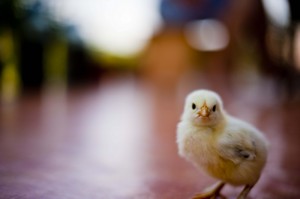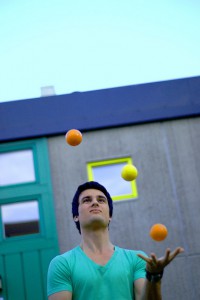Monitoring
06/16/11
In the era of warrantless wiretapping, geo-location tracking, and 24/7 electronic surveillance, why should the Gonzalez household provide its youngest dwellers with any form of privacy? Especially when the surveillance not only alerts us when the mocosos are playing instead of sleeping so we can yell at them from the bottom of the steps, but also makes us privy to cute and tender moments between brothers?
Early one morning a couple of weeks ago, before the damn sun began to rise at 5:00 AM and screw up our boys’ biological clocks and ruin our lives, my wife heard the following exchange between Gabe (our older son) and Sam (our younger son) coming from the baby monitor in their bedroom:
Gabe: Sam, you’re my best friend, right?
Sam: [chuckles]
Gabe: You’re my best friend, right, Sam?
Sam: [chuckles again]
Gabe: No, Sam, say yes!
Sam: [chuckle]
Gabe: You’re my best friend, right?
Sam: YEAH!
Gabe: [chuckles with satisfaction]
But when my wife relayed this to me, did I embrace her and shared with her a lovely moment of mutual congratulations for raising such loving and caring little boys? Oh, how naive you are and how little you know me. Read the blog, darn it!
No, my first reaction was to ask whether they were speaking in English. The answer was yes.
Of course, this is not surprising or hugely disappointing, but it’s happening sooner than I expected. As always, it just takes for me to get done describing how the boys speak this language or the other in such and such situation, for my boys to change it up and pull the rug from under me.
But at the same time that English is becoming the predominant language in their conversations, Sam’s vocabulary continues to explode and I can confidently claim that the boy has formally entered the world of bilingualism (again, let’s see if I’m changing the story again tomorrow).
Sam now understands tens, if not hundreds of words in both languages, speaks tens (not quite hundreds yet) of words in both languages, and is beginning to string together cute little sentences (albeit, sentences that only his loving parents can understand) in both languages.
And even more exciting: we’ve seen him catch himself and self-correct when he uses the ‘wrong’ language when addressing one of us.
So we have this interesting dichotomy between Sam’s older brother, his role model and hero, leading him down a path of predominant English communication, and Sam beginning to grasp the dynamics of bilingualism and hitting that stage where the floodgates of vocabulary acquisition bust open.
Is it time to isolate the brothers and drive a permanent wedge between them for the sake of molding their language habits to my liking? Hmm, tempting! But no, it’s time to learn and continue enjoying this fascinating journey. And according to my clock, it’s time for me to call it a night since the freaking sun will be shinning through my window at like 4:00 AM. And if I wake up early, hopefully I’ll catch more cute dialog between my boys through the baby monitor.










